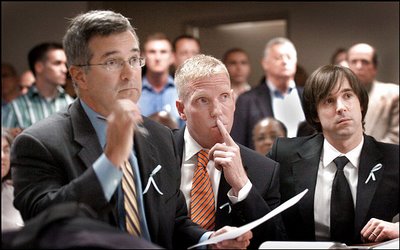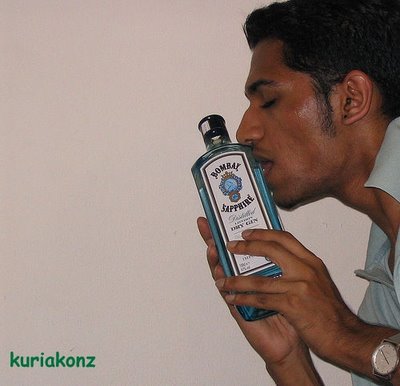 WASHINGTON, DC - It was like a scene out of "The People's Court" -- on one side the mostly white supporters of a gay-friendly bar, on the other the parishioners of a black church in Washington's historic Shaw neighborhood.
WASHINGTON, DC - It was like a scene out of "The People's Court" -- on one side the mostly white supporters of a gay-friendly bar, on the other the parishioners of a black church in Washington's historic Shaw neighborhood.They all packed the hearing room of the city's Alcoholic Beverage Regulation Administration yesterday to make their case for or against the Be Bar, scheduled to open in June on Ninth Street NW.
"A bar ? Across from my church?" asked Barbara Campbell, who lives on Georgia Avenue NW and for three decades has gone to Scripture Cathedral in Shaw, where she works as a cook in the church's day-care center. "Don't they understand that there is a day-care center in the church?"
She and other parishioners opposed to the bar were seated in the small hearing room, their worries in their faces. Their pastor of more than 40 years, Bishop C.L. Long, was there, too, his staff in tow.
The bar's nearly two dozen supporters were mostly standing, light-blue ribbons pinned to their shirts. Michael Watson was busy handing out the ribbons. He's one of the bar's two owners, both of them D.C. residents, both of them gay.
"This fight here is really more than just about a liquor license, more than just about a bar," says Mark Lee, a 30-year District resident who now lives in Logan Circle. "This is about who gets to decide which establishments open where."
There's nothing new about fights over the location of a bar, gay or otherwise. It happens all the time. But the battle over Be Bar is unfolding in the midst of a wave of gentrification, where race, class and now sexual orientation get thrown into an already simmering pot.
Articles have been written in the gay press about the controversy. Lawyers were on hand yesterday to speak for their respective clients. And people from outside and inside Shaw have weighed in on the issue in recent weeks.
Yesterday ABRA dismissed a protest from the D.C. Black Church Initiative, partly because the group, in a letter to the board, didn't object to Be Bar on legal grounds but because it "will undermine the moral character" of Shaw and "only promote an alternative lifestyle that runs counter to the values" of the neighborhood.
Even Advisory Neighborhood Commissions are divided. Though the bar is within the bounds of ANC 2F, where the six commissioners (all white) have given their support, it's close enough to ANC 2C, where the four commissioners (one of whom is Latino, the rest black) voted 3 to 1 last month to protest the bar's liquor license.

The law states that no liquor license shall be issued to establishments "within 400 feet of a primary, elementary or high school," says Jeff Coudriet, an ABRA spokesman, but the proximity of an establishment to a day-care center "is an additional consideration."
On May 3, ABRA will decide if a group of Scripture parishioners and ANC 2C have legal standing to oppose the bar's license.
"It's hard to not think that they're against this whole thing because I'm gay and it's a bar open to gay people," Watson says of those challenging his business.
Long shakes off such talk. He insists that he didn't know that the Be Bar is gay-friendly. "If this is a gay club, that's bad for the kids," he said yesterday.
He has never been hesitant to express his opinion on homosexuality, and yesterday was no different. "Read the whole chapter," he said, referring to Romans, Chapter 1, which condemns homosexual behavior.
Watson and Long, who found themselves in the same room for the first time, have yet to talk to each other since the controversy started early last month. And the battle over Be Bar, like the recent fights over the long tradition of nonresidential church members double-parking on Sundays, is about a lot more than parking spaces or a bar's liquor license.
Stroll along Ninth Street and residents will talk about their transitioning neighborhood, sometimes politely, sometimes bitterly.
Susan Dugar, a black woman in her forties, grew up in Shaw. "That church has been here forever, through the '60s, the '80s, the ups, the downs" of the District, she said recently. "Gay people who are moving into the city, in Dupont, Logan, in U Street, can't just come in and say, 'We're gonna build this and that in front of it.' "
K.C. Sykora, 24, moved to Shaw two years ago with her roommate. Both are white. "To be honest," she said, "I'm more comfortable with gay people than with churchgoing people."

Sitting inside Azi's Cafe, the barely year-old WiFi-connected coffee shop with black and white floor tiles, Alexander Padro talked of Shaw's changing landscape. In the past year, Queen of Sheba, an Ethiopian eatery; Vegetate, a vegetarian hot spot; and International Lifestyles, a boutique/concierge service/corporate party-thrower with pristine white floors and vases of red roses, have opened on Ninth Street.
Padro is one of Shaw's neighborhood commissioners, and he's the one-man operation behind Shaw Main Streets, an umbrella group that fosters commercial growth in the neighborhood. He is also gay, and the one vote for Be Bar on the commission. Homophobia, he says, has played "a part in all of this."
There are some streets in Shaw where half of the residents are gay and gay couples, he says. He points to DC GuestHouse, the gay-owned B&B in a three-story Victorian that used to be a funeral home and rents its rooms for as much as $300 a night. It's at 10th and O streets, about a block away from Scripture, a longstanding institution on the block.
"I've been a pastor in Shaw for 46 years," Long said while taking a break after the 11 a.m. service on a recent Sunday. A framed photograph of a young Long posing with President Jimmy Carter, who signed it "With best wishes to C.L. Long," was prominently displayed. He lives in Bowie and drives in for Sunday services. He's got a parking spot in front of his church. "We helped clean this area up. Now that we've got the area cleaned up . . ." He pauses.
"Change is good, but it depends on what you're changing to," he says.
He pauses some more.
"But folks need to understand that this church, all churches, play a big part in the community. I have my own opinion on the gay lifestyle, but I don't fight them -- they're welcome to come to our church, because I'm in the business of changing lives. Lives have been changed in this very church, and maybe God can do something for them."
Watson has lived in a three-story house in Shaw for six years. He formerly owned a TCBY, across from Whole Foods on P Street, and partnered with his friend Tom McGuire for Be Bar.
The vibe for the 3,000-square-foot space, he says, is "modern chic meets baroque." The drinks: candy-flavored martinis. The music: Top 40.
The protest, if it continues, would delay the bar's opening for months, if not longer, he says.
"We're rolling the dice right now. We're in limbo. This could go on and on," says Watson, 32. "I understand that change is hard, but I also don't understand it."
from The Washington Post
No comments:
Post a Comment